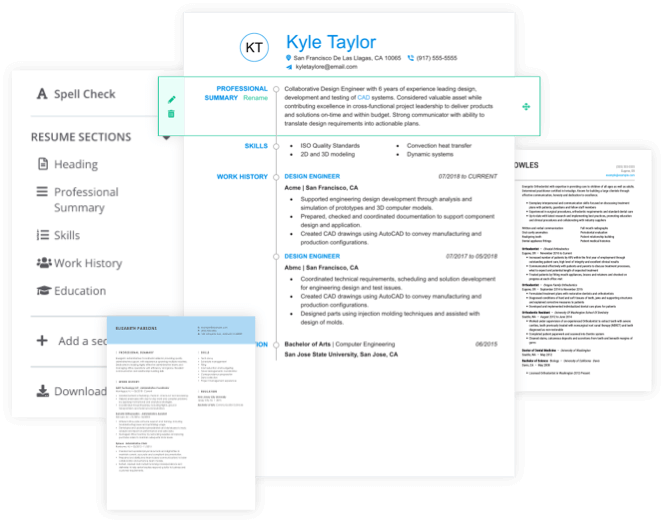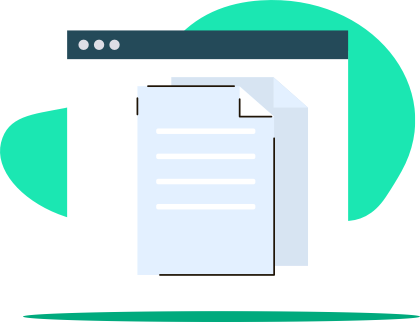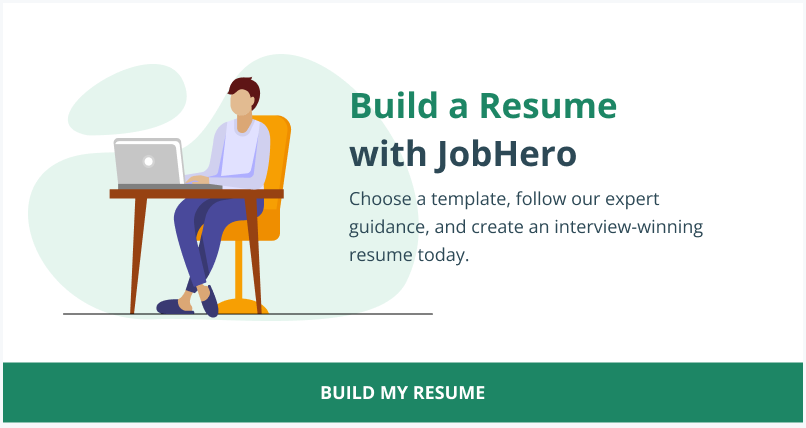- Featured in:

Customs and border protection officers work primarily to enforce immigration and customs laws. They also enforce agricultural laws as they pertain to the importation and exportation of goods by individuals. This is a skilled position that requires candidates to have a passion for the law, a sharp attention to detail, and the ability to read people. Having a strong mental fortitude is essential to this role. Customs and border protection officers may work domestically at a United States port of entry or internationally at a preclearance duty station. Since people are always traveling in and out of the United States, customs and border protection officers may need to be available to work at all hours of the day, every day of the week. They report directly to a commanding officer to whom they have been assigned.
Need cover letter guidance? Add a cover letter to your resume using our cover letter formats how-to guide and add value to your resume.
Improve your application with a personal message! Your resume may summarize your qualifications, but a cover letter can help you express your professional accomplishments and working style. Pair these cover letter templates with our builder subscription to unlock AI-powered text templates and professional designs that will help you submit a complete application.
Customs and Border Protection Officer Duties and Responsibilities
While a customs and border protection officer’s duties and responsibilities are determined by the port of entry or preclearance duty station where they work, there are many core tasks associated with the role. Based on our analysis of the job, these include:
Inspect Cargo, People, and Luggage
The main responsibility of customs and border protection officers is to inspect cargo, people, and luggage that are coming into the United States for illegal contraband like drugs or invasive animals and plants. They monitor these things using specialized machines and by performing randomized checks.
Detain and Interview Suspects
If the customs and border protection officer identifies a person who is trafficking something illegal, they detain the person and interview them appropriately. This interview typically entails asking the suspect where they are coming from and gathering as much information about them as possible.
Report to their Commanding Officer
Customs and border protection officers are responsible for making regular reports to their commanding officers and other supervisors. The contents of these reports may vary depending on where the officer is stationed, but they typically include detailing any contraband they have found or people they have detained.
Perform K-9 Inspections
Some customs and border protection officers work with dogs to perform searches of people and luggage entering the United States. These dogs are specially trained to find illegal contraband like drugs, money, weapons, and explosives.
Work on the Special Response Team
Some customers and border patrol protection officers work as a part of the Special Response Team, which is a tactical unit that deals with situations that are too dangerous for regular officers to handle. These situations may include an active shooter or natural disaster.
Customs and Border Protection Officer Skills and Qualifications
Customs and border protection officers act on their instincts and pay close attention to detail. The U.S. Customs and Border Protection agency requires recruits to have at least a bachelor’s degree in a law enforcement or criminal justice field, relevant work experience, or a combination of both in order to qualify for the position. To become a customs and border protection officer, candidates should also possess the following skills and qualifications:
- US citizenship - customs and border protection officers are required to be US citizens. They are also required to have lived in the United States for the past three years, at minimum, and be younger than 37 years of age
- Background investigation - candidates are required to pass a thorough background check process that includes medical screening, a drug test, and a polygraph
- Sound judgment - since it's the customs and border protection officer's responsibility to prevent dangerous substances from entering the country, they need to be able to make appropriate judgement calls, sometimes in the face of high stress situations
- Interpersonal communication skills - customs and border protection officers are always communicating with people, and they need to do so in an effective manner that's easy to understand
- Foreign language skills - depending on their assigned post, customs and border protection officers may need to speak a foreign language. While this may not be required, it's still helpful if candidates have a base level of the language
Tools of the Trade
Customs and border protection officers often use some or all of the following tools in their day-to-day job duties:
Firearms
Baggage X-ray machines
Handheld radios
Customs and Border Protection Officer Education and Training
The U.S. Customs and Border Protection agency requires all customs and border protection officers to undergo 17-19 weeks of comprehensive on-the-job training at the CBP Field Operations Academy in Brunswick, GA. This training involves learning about anti-terrorism tactics, passenger processing, firearms training, and arrest techniques.
Customs and Border Protection Officer Salary Outlook
Pay for customs and border protection officers follows the United States’ General Schedule (GS) for federal employees. Typically, new candidates are assigned the GS-5 grade, which includes a base salary of around $29,000 per year and an average differential of around $11,000 for overtime and locality pay. Those with more education or experience may qualify for a higher grade of pay.
Customs and border protection officers also receive a comprehensive benefits package that includes health insurance, paid time off (including military leave and federal holidays), and a generous retirement plan.

Helpful Resources
Check out some of the following resources to learn more about the roles and responsibilities of a customs and border protection officer:
U.S. Customs and Border Patrol Agency
this is the official website of the U.S. Customs and Border Patrol agency. On this webpage, you can find more information about what the agency does as a whole, along with the specific job duties of a customs and border protection officer. You'll also find videos of actual officers talking about their jobs and what they love about them.
U.S. Government Connections
this LinkedIn group dedicates time to "connect current and former federal employees and contractors with one another to share contacts, ideas, and opportunities." This group provides a safe place to ask more about certain positions or how it's like working for the U.S. government.
Take Charge of Your Federal Career: A Practical, Action-Oriented Career Management Workbook for Federal Employees
the simple premise of this book is to give you the tools you need to advance in a federal career. The book touches on seven different steps that you should take to attain that advancement, ranging from selfassessment to prepping for interviews.
Preparation Manual for the CBP Officer Entrance Exam
since all potential customs and border protection officers need to pass the CBP Officer entrance exam, it's incredibly helpful to have a reference and study guide handy. Within this book, you'll find the necessary information you need to pass the Logical Reasoning, Writing Skills, and Arithmetic Reasoning tests.
Customs and Border Protection Officer Resume Help
Explore these related job titles from our database of hundreds of thousands of expert-approved resume samples:




